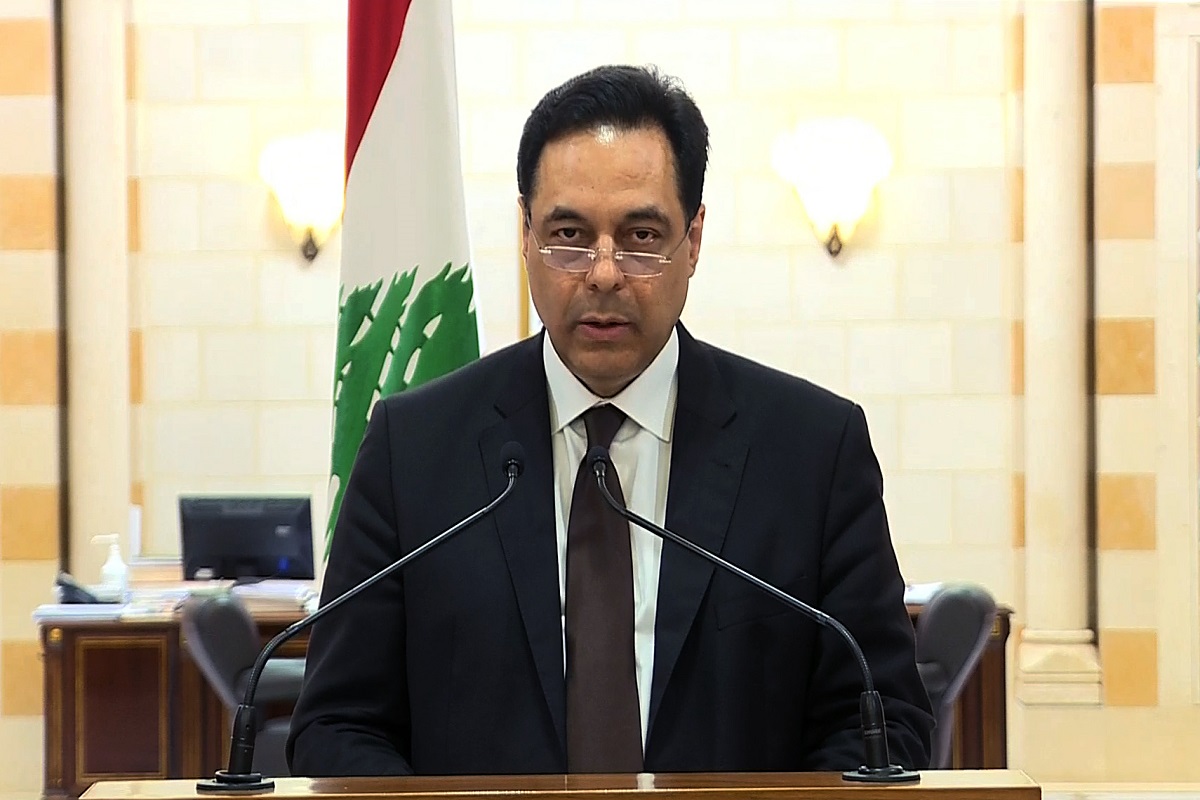Lebanon’s government has resigned amid mounting anger over the explosion last week that devastated parts of Beirut and left more than 200 people dead.
In a televised address, Prime Minister Hassan Diab made this announcement on Monday evening, according to the BBC report.
Advertisement
Many people have accused the country’s leaders of culpability through their alleged negligence and corruption.
Protesters have taken to the streets and clashed with police for a third straight day.
Earlier, PM Diab said that 2,750 tonnes of the agricultural fertiliser ammonium nitrate that had been stored for years in a portside warehouse had blown up, sparking “a disaster in every sense of the word”.
The blasts were so massive they shook the entire city and could be heard throughout the small country, and as far away as Nicosia on the eastern Mediterranean island of Cyprus, 240 kilometres (150 miles) away.
President Michel Aoun has asked the government to stay on in a caretaker capacity until a new cabinet is formed.
Diab, who was appointed Prime Minister in January after months of deadlock, said his government had “gone to great lengths to lay out a road map to save the country”.
“Today we follow the will of the people in their demand to hold accountable those responsible for the disaster that has been in hiding for seven years, and their desire for real change,” Diab said.
On Monday the death toll from the explosion rose to 220 with 110 people still missing, Beirut city governor Marwan Abboud was quoted by the al-Marsad Online news website as saying.
Many foreign workers and lorry drivers were among the missing, he told Al Jadeed TV channel.
The huge blast damaged buildings in a radius of several kilometres in Beirut, leaving more than 200,000 homeless or living in homes with no windows or doors.
On Monday police fired tear gas at angry protesters during tense clashes in the capital which continued following the government’s resignation.
The explosions also come as Lebanon awaits a UN tribunal’s verdict Friday on the 2005 murder of former Lebanese premier Rafic Hariri, killed in a huge truck bomb attack.
Coronavirus had curbed the protests, but the financial situation has continued to worsen and last Tuesday’s explosion was seen by many as the deadly result of years of corruption and mismanagement.
The government’s plans to investigate were not enough for many who have lost all faith in the political elite. Before the cabinet’s resignation, a number of ministers had already offered to step down.
(With inputs from agency)









